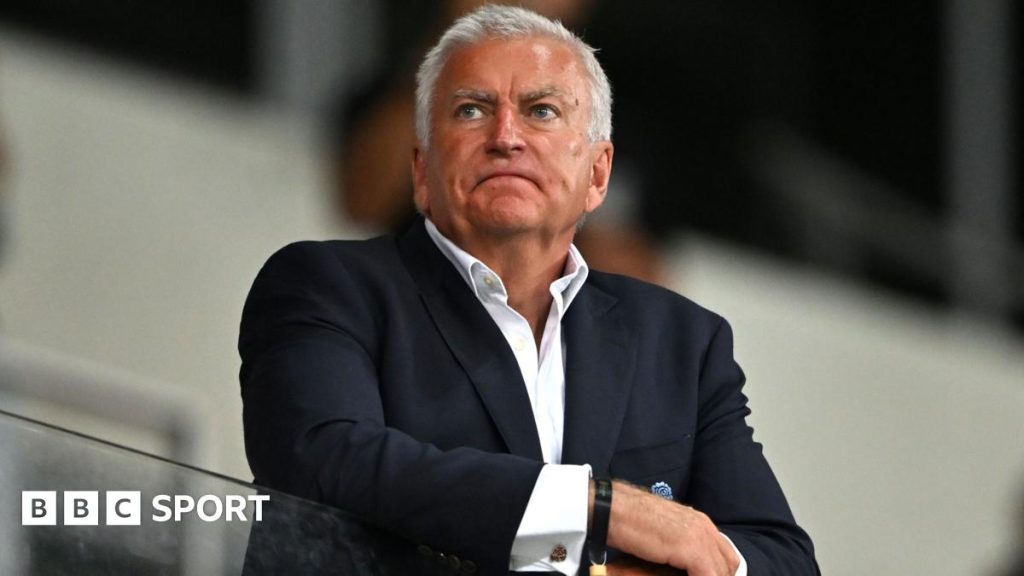Despite the backing, plenty of members didn’t support him (35%) – what can they do now about it? Will they do anything further?
Despite suggestions before the SGM that it would be just the start, not the end, of the rebellion, Sweeney’s opponents struck a more conciliatory tone when they spoke to the BBC afterwards.
They stressed that forcing the SGM and making the RFU board answerable to the game at large was a victory in itself.
Meanwhile, a second motion, which the board brought forward, to devolve more responsibility to the community game seems to have gone a long way to quelling the uprising.
“We want to work together,” said Paddy McAlpine, chair of Chichester Rugby Club and co-chair of the Whole Game Union (WGU).
“What is really encouraging about tonight is that all those rugby players across the nation from the smallest club up to the Championship now have a voice.
“And we will hold those responsible for the leadership of our game to account. We look forward to all the changes and improvements that they are going to put in place.”
“This was never really about one individual,” added Alistair Bow, chairman of Championship club Nottingham and co-chair of the WGU.
“We felt the game was suffering to the point that we needed to have a look at the top. We went to the game and the vote has been cast.
“But actually we got what we needed. There was no winner and loser from the outset, but what we have done is we have taken our plight to the whole game.
“The game has had an opportunity [to voice concerns] and there were some very interesting questions raised in there tonight.
“And you could see there was a good percentage of people voted for him to go.”
Why wasn’t Sweeney’s bonus discussed and how significant is that?
Surprisingly, Sweeney’s whopping pay packet and bonus was barely discussed throughout the 90-minute meeting, despite it being the catalyst that rallied the grassroots in the first place.
A report by consultants Freshfields into the controversial bonus plan was published by the RFU in February and while this report threw up more questions than answers, especially around the metrics and methods of the scheme, it has done enough to turn attention elsewhere.
What is clear from the questions raised at the meeting and from the nationwide roadshows of the past few months is how the grievances vary – from the Championship clubs unhappy at their funding cuts and blocked routes to the Premiership, to the rank-and-file referees put in an invidious position by the union’s bungled tackle-height change.
Meanwhile, some community clubs have spoken about how they don’t feel represented while other clubs have cited the lack of rugby expertise – in their opinion – on the RFU board, as well as ongoing concerns about the sustainability of the professional game.
Ideological conflicts over what the RFU is, who it serves and who should make decisions still remain.
But without the revolt, Sweeney and Beaumont wouldn’t have embarked on the roadshow and may have remained shielded to the various gripes felt up and down the English rugby pyramid.
“We have had thousands of conversations in clubhouses up and down the country in recent weeks,” explained Beaumont.
“Some feedback has been hard to hear but most of it has been constructive. We have listened. We have responded.
“It is absolutely right that members should always have the opportunity to hold the leadership of the RFU to account. That is part of our democratic process as a membership-owned organisation.”








